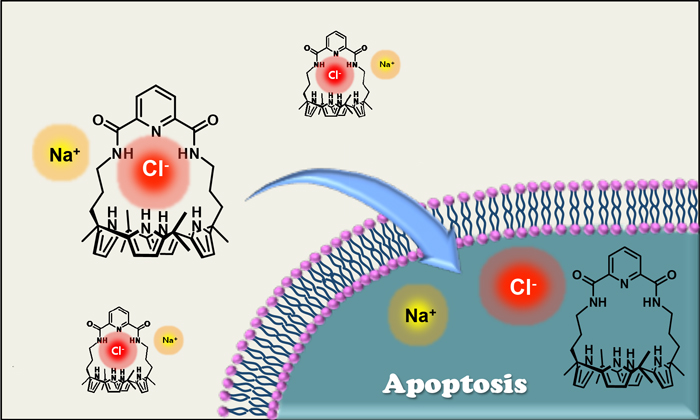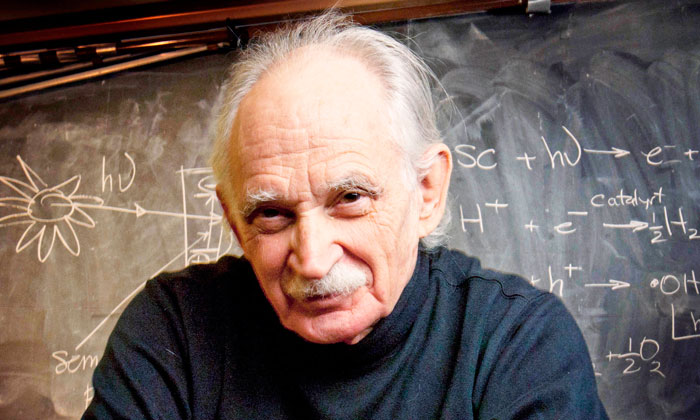Freshman Research Initiative Spotlights: Crystals and Nanoparticles
Experiential learning in the College of Natural Sciences includes the nation's largest effort to involve first-year students in meaningful research, the Freshman Research Initiative (FRI). In the spring, hundreds of first-year students join one of over 27 unique research streams for real, hands-on encounters with meaningful research questions that need answering.











 Researchers from The University of Texas at Austin and five other institutions have created a molecule that can cause cancer cells to self-destruct by ferrying sodium and chloride ions into the cancer cells.
Researchers from The University of Texas at Austin and five other institutions have created a molecule that can cause cancer cells to self-destruct by ferrying sodium and chloride ions into the cancer cells.



















